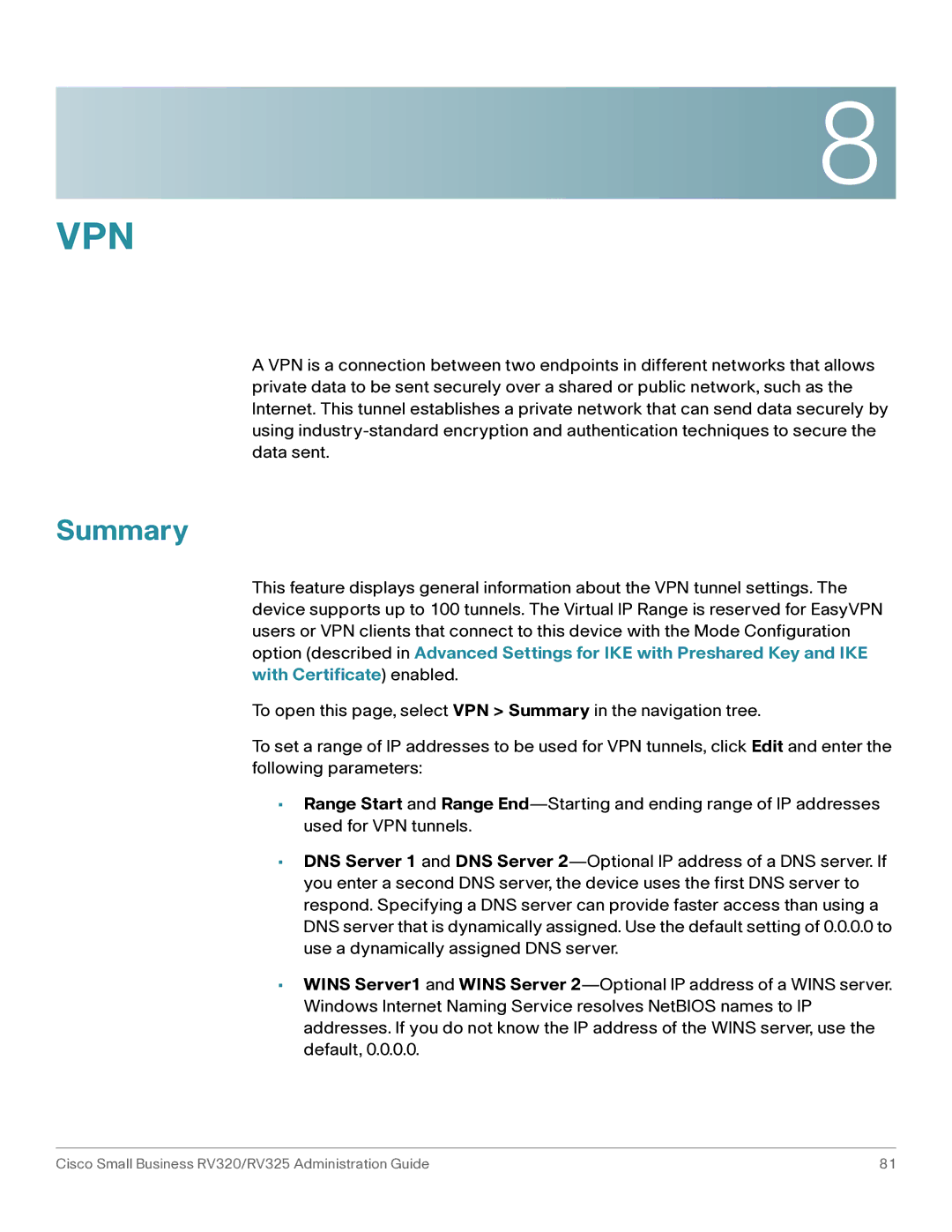
8
VPN
A VPN is a connection between two endpoints in different networks that allows private data to be sent securely over a shared or public network, such as the Internet. This tunnel establishes a private network that can send data securely by using
Summary
This feature displays general information about the VPN tunnel settings. The device supports up to 100 tunnels. The Virtual IP Range is reserved for EasyVPN users or VPN clients that connect to this device with the Mode Configuration option (described in Advanced Settings for IKE with Preshared Key and IKE with Certificate) enabled.
To open this page, select VPN > Summary in the navigation tree.
To set a range of IP addresses to be used for VPN tunnels, click Edit and enter the following parameters:
•Range Start and Range
•DNS Server 1 and DNS Server
•WINS Server1 and WINS Server
Cisco Small Business RV320/RV325 Administration Guide | 81 |
